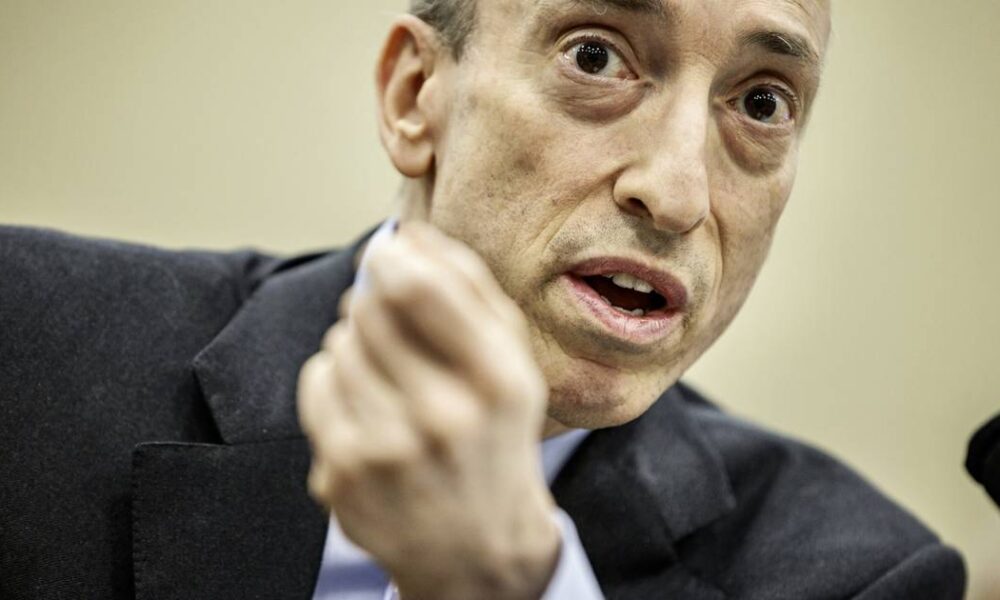Regulation
SEC is just doing its job in enforcement matters, crypto critics tell lawmakers – DL News

- Crypto critics say the SEC is justified in its crackdown on crypto companies.
- They were speaking at a congressional hearing on whether the regulator was too harsh in its enforcement powers.
You can’t have both.
That was the message from critics of the cryptocurrency industry at a congressional hearing held Tuesday to discuss the Securities and Exchange Commission’s enforcement powers.
The top Democrat on the House Financial Services Committee, Maxine Waters of California, told lawmakers that watering down the SEC’s powers “only empowers fraudsters, scammers and those who know the law but don’t like it” – including many crypto companies.
“The crypto industry, which publicly claims to want regulation, is suing the SEC for trying to regulate it,” Waters said.
During the hearing, lawmakers discussed whether the SEC’s enforcement powers should be weakened in certain cases, whether its disciplinary processes are biased, and whether it has imposed arbitrary and inflated fines on companies of cryptography.
But the discussion inevitably strayed from familiar territory for the subcommittee – rehashing arguments over whether the SEC, under the leadership of Gary Gensler, has declared an unjust war on crypto.
Under Gensler’s leadership, the agency has intensified its measures against crypto companies by 53% in 2023 measured by the number of enforcement actions taken
Targets of the litigation and administrative proceedings included major players such as exchanges Coinbase and Binance.
Join the community to receive our latest stories and updates
The trend continues this year.
Last month, the SEC served decentralized exchange Uniswap with a Wells Notice – an alert that the agency is about to take enforcement action against a business.
And on Monday, fintech Robinhood Markets said it too received a Wells notice regarding crypto tokens traded on its retail platform.
Industry counters
Venture capitalists and crypto CEOs such as Coinbase founder Brian Armstrong have fought back.
With the rallying cry that the SEC’s strategy is one of “regulation by enforcement,” these crypto proponents claim that their tokens are not securities and that the SEC is therefore overstepping its authority.
But there are those, like Waters, who say this reasoning is specious.
“The crypto industry, which publicly claims to want regulation, is suing the SEC for trying to regulate it.”
— Maxine Waters, member of the House Financial Services Committee
These critics say crypto companies want just enough regulation to give them a patina of respectability without hampering their profits — and investor protection be damned.
Another outspoken industry critic is consultant John Reed Stark, who was present at the hearing as a witness.
At the hearing, he said the industry’s arguments were “strangely hypocritical.”
Digital assets as securities
While crypto proponents say they are championing a new type of financing, “when the SEC comes knocking, they argue in court papers that selling digital assets is like selling baseball cards, American Girl dolls or cryptocurrencies.” Baby Hat” said Stark, a former attorney in the SEC’s enforcement division.
Stark said cryptocurrency trading — and the exchanges, broker-dealers and market makers that support that trading — fall squarely under the Securities Acts of 1933 and 1934 that regulate the issuance of securities and markets. secondary.
The Securities Act of 1933 requires that investors receive relevant information about securities sold to the public and prohibits deception or fraud.
The Securities Act of 1934 requires anyone seeking to control more than 5% of a company’s securities to disclose material information.
Judges in SEC Lawsuits Against Crypto Defendants – Such as LBRY, KikAnd TerraForm Laboratories – supported the claim that the sale of cryptocurrencies falls under these rules, Stark added.
He said the SEC is simply doing its job under the securities laws that have made it a largely effective, if sometimes flawed, financial watchdog under Republican and Democratic presidencies.
“Digital asset advocates may not like the outcome of the SEC’s oversight, but that does not mean a lack of due process and fair notice,” Stark said.
“It just means the industry needs to get its act together and adapt to the laws that apply to it, not the other way around,” he said.
Do you have a hot tip or opinion on crypto regulation? Contact the author at joanna@dlnews.com.
